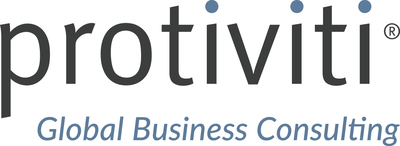United Nations Executive Secretary Talks with Protiviti: 'We Need Private Sector Engagement, Investment to Solve Environmental Crises'
The UN's Executive Secretary, Ibrahim Thiaw, emphasizes the need for businesses to transition from a linear to a circular economy to address climate change and resource depletion in an interview with Protiviti. He warns that failing to act could lead to a $23 trillion loss by 2050 due to land degradation. A shift towards sustainable practices could generate economic returns of $140 trillion annually. Thiaw calls for private sector investment in sustainable land management, highlighting the potential for businesses to drive positive environmental change and achieve long-term profitability.
- Potential economic returns of $140 trillion annually through sustainable practices.
- Shift to a circular economy may create substantial investment opportunities for businesses.
- Warning of a potential $23 trillion loss in global economy by 2050 if current practices continue.
Insights
Analyzing...
Ibrahim Thiaw, Executive Secretary of the United Nations Convention to Combat Desertification, on climate change, biodiversity and productive land loss requiring immediate action, featured in exclusive interview with 'VISION by Protiviti'
MENLO PARK, Calif., Jan. 9, 2023 /PRNewswire/ -- In an interview with VISION by Protiviti, the United Nations' (UN) Executive Secretary of the UN Convention to Combat Desertification calls on global business leaders to take an active role in helping to solve the planet's biggest problems. "Businesses need to shift from a linear economy — extracting resources, using them quickly and discarding them as waste — to a circular economy where used products are repurposed and re-injected in the economy," said Ibrahim Thiaw in an interview with global consulting firm Protiviti while he was at COP27, the Conference of the Parties to the United Nations Framework Convention on Climate Change.
"Business has a huge role to play in shaping the consumption patterns of the growing middle class, as it will demand more land, water and other resources. There is a dire need for investments that, at once, match this huge consumer demand for change, and ensure we adapt to the multiple disruptions exacerbated by climate change and land degradation," stated Thiaw.
The interview, conducted by Protiviti's Baris Karapinar, ESG and Sustainability lead for the firm's operation in Switzerland, wrapped up Protiviti's six-month exploration of the business impact of sustainability in a content series titled "Future of ESG," the latest theme explored on the VISION by Protiviti online thought leadership platform.
Thiaw calls on the private sector to help solve Earth's environmental challenges, including climate change, drought, water scarcity, land degradation and biodiversity loss. Doing so will give people a chance to generate 50 percent more wealth over the next three decades, Thiaw says. "The world has a choice: Either we continue with the current nature-destructive path and lose up to half of the global GDP by 2050, or we take a sustainable land management approach to combat the current environmental crises we're facing."
The UN has led the global effort to raise awareness and affect action with its Sustainable Development Goals, a call for action by all countries — poor, rich and middle-income — to promote prosperity while protecting the planet. "The global economy will lose an estimated US
The economic returns of restoring land and reducing degradation, greenhouse gas emissions and biodiversity loss are estimated at US
Cory Gunderson, executive vice president, Global Solutions, Protiviti, says the United Nations' message couldn't be clearer. "Business leaders will play a critical role in helping solve some of the planet's biggest challenges. There are many paths to explore. We believe having clear strategic goals and objectives to address ESG matters is a key to future success. And it can be good business. We're thrilled to highlight the key issues facing businesses, including ESG, in our landmark VISION by Protiviti program," said Gunderson.
The interview with Thiaw is one of more than 30 pieces of content, including videos, podcasts and articles, currently available as part of VISION by Protiviti's Future of ESG initiative available here. Other highlights include:
- Morgan Stanley's Carla Harris on what lies ahead for ESG
- Accelerating digital and net zero sustainability with Microsoft
- AWS Energy Solutions Lead on Scope 3, 'data obesity' and a decarbonized future
- Protiviti-Oxford survey finds ESG enthusiasm gap among North America executives
- Boardroom Buzz: Cambridge dean on the business of sustainability
- Inside The Economist's global ESG rankings
- A global 'grand bargain' will be required for complicated climate transition in India
- CEO of Nepad: Agenda 2063 could transform Africa into 'global powerhouse'
VISION by Protiviti is a provocative thought leadership series that puts megatrends under the microscope to provide strategic insights for C-suite executives and board members. Content is available in a variety of formats, including articles, podcasts, video interviews and special events. Subscribe to VISION by Protiviti for free here. In Q1 2023, the series will explore the metaverse.
Protiviti (www.protiviti.com) is a global consulting firm that delivers deep expertise, objective insights, a tailored approach, and unparalleled collaboration to help leaders confidently face the future. Protiviti and its independent and locally owned Member Firms provide clients with consulting and managed solutions in finance, technology, operations, data, digital, legal, governance, risk and internal audit through its network of more than 85 offices in over 25 countries.
Named to the 2022 Fortune 100 Best Companies to Work For® list, Protiviti has served more than 80 percent of Fortune 100 and nearly 80 percent of Fortune 500 companies. The firm also works with smaller, growing companies, including those looking to go public, as well as with government agencies. Protiviti is a wholly owned subsidiary of Robert Half (NYSE: RHI). Founded in 1948, Robert Half is a member of the S&P 500 index.
Protiviti is not licensed or registered as a public accounting firm and does not issue opinions on financial statements or offer attestation services.
All referenced marks are the property of their respective owners.
Editor's note: Protiviti photo available upon request.
![]() View original content to download multimedia:https://www.prnewswire.com/news-releases/united-nations-executive-secretary-talks-with-protiviti-we-need-private-sector-engagement-investment-to-solve-environmental-crises-301716293.html
View original content to download multimedia:https://www.prnewswire.com/news-releases/united-nations-executive-secretary-talks-with-protiviti-we-need-private-sector-engagement-investment-to-solve-environmental-crises-301716293.html
SOURCE Protiviti








